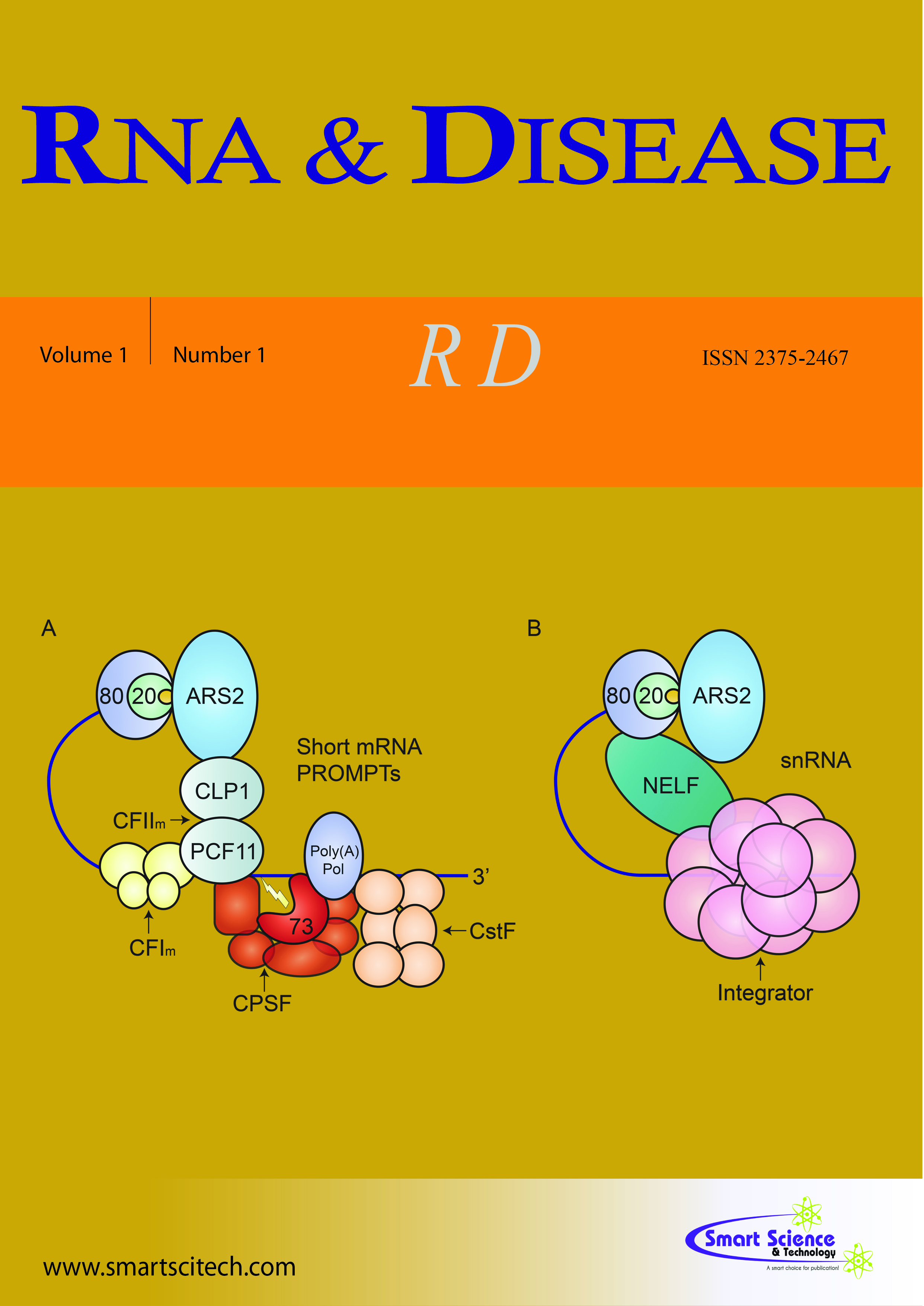RNA methylation in lymphoid malignancies
DOI: 10.14800/rd.1563
Abstract
N6-methyl-adenosine (m6A) modification is the most abundant internal modification in mammalian RNA and plays an important role in gene expression mechanisms such as mRNA splicing, nuclear export, transcript stability and translational efficiency. The extent and the significance of m6A modifications in pathological conditions, especially hematological malignancies such as lymphomas are not known. In this study, the global m6A methylation by an immunocapture method in normal B cells (GMO 6990), and in the B cell neoplastic cells such as diffuse large B cell lymphoma (DB), Burkitt’s lymphoma (Raji) and a relapsed pre-B cell acute lymphoblastic leukemia (ALL) (NALM6) cells are discussed. Variable mRNA expression of RNA methylases such as methyltransferase like 3 (METTL3) and Wilms tumor 1 associated protein (WTAP) that methylates internal adenosine residues in mRNA was observed in normal and lymphoma cells as quantified by qRT-PCR. Further, an mRNA demethylase, Fat mass and obesity associated enzyme (FTO) mRNA expression was found to be high in lymphoma cells compared to normal B cells. A similar trend was also observed between normal and ALL patients at diagnosis. Overall, our studies suggest that altered RNA methylation and enzymes controlling this process may be of significance in the pathology of lymphoid malignancies.











